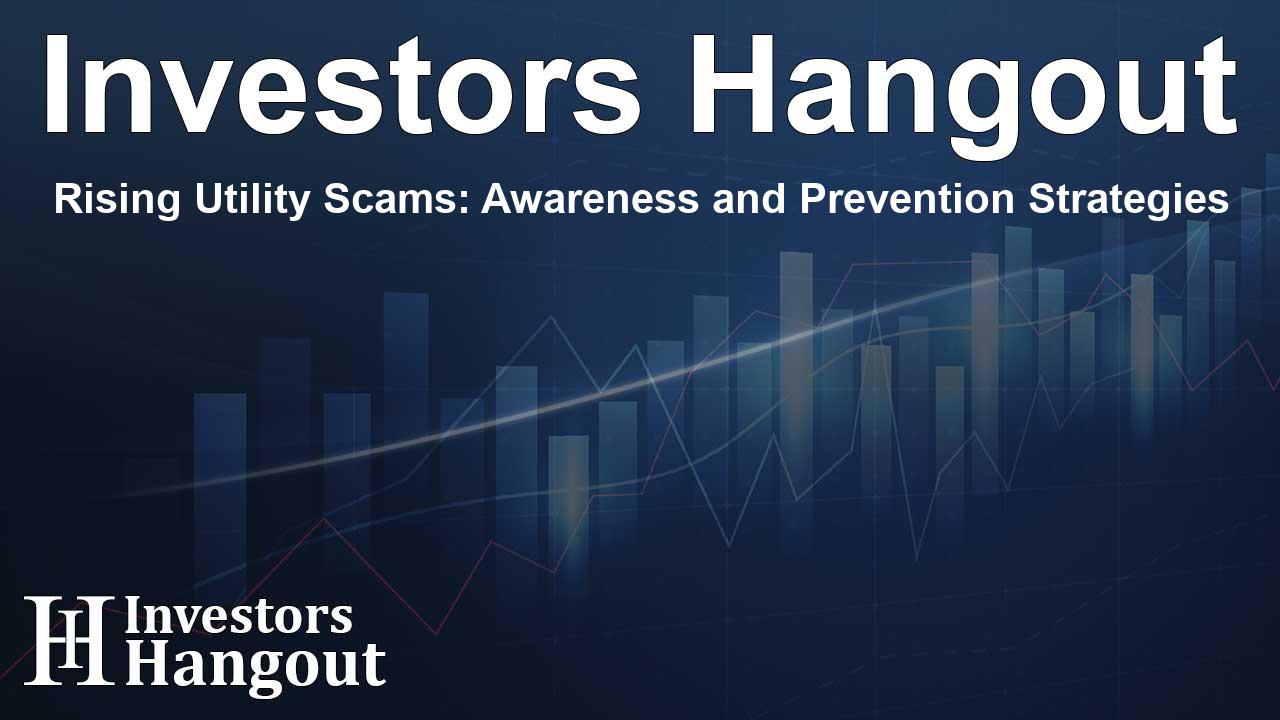Rising Utility Scams: Awareness and Prevention Strategies

Rising Utility Scams: Awareness and Prevention Strategies
Utility scams are becoming more prevalent, with a noticeable increase in fraudulent activities targeting unsuspecting individuals. It's essential for everyone, particularly those aged 50 and over, to remain vigilant against these deceptive practices.
Understanding the Surge in Utility Scams
Scammers are increasingly impersonating utility company representatives, using various tactics to convince consumers they're legitimate. Reports show that impostor schemes, where fraudsters falsely claim to represent utility companies, have become one of the most common types of fraud. They often use scare tactics, threatening consumers with immediate service disconnection unless payment is made.
Common Tactics Used by Scammers
Some of the strategies include threats of immediate service shutoff or promises of overpayment refunds. Scammers might request payment through unconventional means, such as gift cards, cryptocurrency, or prepaid debit cards. These methods effectively bypass traditional payment channels, making it easier for criminals to abscond with money.
Latest Alerts from State Utility Commissions
Local utility commissions have been active in addressing these scams. For instance, a statewide alert was recently issued in response to a spike in reports about individuals impersonating utility representatives. The warning was aimed at fostering awareness and encouraging reporting of suspicious activity to the appropriate authorities.
Practical Tips to Avoid Utility Scams
To better protect yourself and your loved ones from utility scams, consider the following recommendations:
- Stay calm: Be assured that legitimate utility providers typically issue multiple written and electronic notices before cutting off service.
- Verify authenticity: If you receive a suspicious call, hang up and call the number listed on your utility bill to confirm any claims.
- Never share financial information: Avoid disclosing any personal or financial information over the phone or making payments in gift cards or cryptocurrency.
- Report suspicious calls: If you encounter a suspected scam, report it to your utility company, local authorities, or consumer protection agencies.
Recognizing Common Scams
Impostor scams come in various forms, including fake refund offers, non-existent energy audits, and fraudulent equipment inspections. Scammers often manipulate feelings of urgency and fear to coerce individuals into providing sensitive information, such as bank account or Social Security numbers. They may even pose as inspectors after natural disasters to collect fees under false pretenses.
In Case of a Scam
If you fall victim to a utility scam or suspect one, it's crucial to report the incident promptly. Local law enforcement can assist, and organizations focusing on consumer protection are available to provide guidance.
Resources for Consumers
For those looking for assistance, resources are available to help navigate these challenges. Awareness is the first line of defense against scams, and educating yourself and your circle about potential threats can foster a more secure environment.
If you’re ever in doubt, you can always contact consumer advocacy organizations for their expert guidance on how to handle potentially fraudulent situations.
Frequently Asked Questions
What should I do if I receive a suspicious call from a utility company?
Hang up and contact the utility company using the number provided on your bill to verify the call's legitimacy.
Are there specific ways to identify a utility scam?
Common signs include demands for immediate payment, requests for unusual payment methods, and threats of service cut-off without prior notifications.
Who can I report a utility scam to?
You can report utility scams to your local utility company, local law enforcement, or consumer protection agencies.
What types of payment methods are scammers likely to request?
Scammers often prefer unconventional methods like gift cards, cryptocurrency, and prepaid debit cards, which are harder to trace.
How can I educate others about utility scams?
Share information through community centers, social media, and by participating in local discussions to raise awareness among peers.
About The Author
Contact Caleb Price privately here. Or send an email with ATTN: Caleb Price as the subject to contact@investorshangout.com.
About Investors Hangout
Investors Hangout is a leading online stock forum for financial discussion and learning, offering a wide range of free tools and resources. It draws in traders of all levels, who exchange market knowledge, investigate trading tactics, and keep an eye on industry developments in real time. Featuring financial articles, stock message boards, quotes, charts, company profiles, and live news updates. Through cooperative learning and a wealth of informational resources, it helps users from novices creating their first portfolios to experts honing their techniques. Join Investors Hangout today: https://investorshangout.com/
The content of this article is based on factual, publicly available information and does not represent legal, financial, or investment advice. Investors Hangout does not offer financial advice, and the author is not a licensed financial advisor. Consult a qualified advisor before making any financial or investment decisions based on this article. This article should not be considered advice to purchase, sell, or hold any securities or other investments. If any of the material provided here is inaccurate, please contact us for corrections.
